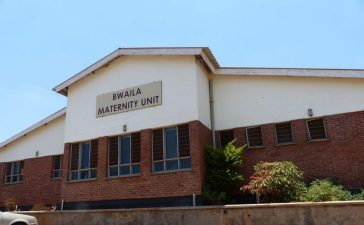In a country where agriculture is a vital part of daily life, the Malawi Congress Party (MCP) has set forth a bold vision in its 2025/2030 manifesto, focusing on achieving food security for all citizens. This vision is embodied in the “Make Malawi Feed Malawi Campaign,” which aims to ensure that every Malawian has access to nutritious food year-round, empowering local farmers, and enhancing agricultural productivity. Below is its thematic approach to national food security:
A Strong Foundation for Sustainable Food Security
Over the past five years, the MCP government has made significant strides toward securing food for the nation. Key initiatives like the Affordable Input Programme (AIP) and the MK600 billion Agricultural Commercialization Programme (AGCOM) have been put into place to bolster food production. However, the journey has not been without challenges. Natural disasters, including floods and droughts, compounded by global issues like the COVID-19 pandemic and the Russia-Ukraine conflict, have disrupted agricultural output and driven up costs for essential inputs like fertilizer.
Despite these setbacks, the MCP is determined to build upon the solid foundation laid over its term in office. The government recognizes that food insecurity is a pressing issue for many Malawians, caused not by a lack of resources but by outdated policies and ineffective systems. As a response, the MCP aims to address these challenges through innovative, people-centered strategies that will provide both immediate relief and long-term solutions.
The Make Malawi Feed Malawi Campaign
The “Make Malawi Feed Malawi Campaign” seeks to empower farmers and promote self-reliance. This initiative envisions a country where hunger is tackled head-on, where every child has access to food, and where no mother has to travel long distances in search of nutrition for her family. To achieve this goal, the next MCP government commits to several key strategies:
Affordable Fertilizer and Inputs: The government will ensure that farm inputs, especially fertilizer, are affordable and accessible through improved procurement strategies and partnerships.
Strategic Food Management: The government plans to enhance the management of national food reserves and create community grain banks, which will help stabilize food availability during tough seasons.
Climate-Smart Agriculture: Recognizing the threat of climate change, the MCP will promote climate-smart practices and irrigation expansion to reduce reliance on rain-fed agriculture.
Commercial Farming and Agribusiness Support: By revitalizing large-scale commercial farming, the MCP aims to boost agricultural productivity while creating thousands of jobs.
Village-Based Food Security Programs: These programs will empower local farmers with the necessary tools, knowledge, and resources to ensure food security at the village level.
Support for Cooperatives: The government seeks to strengthen agricultural cooperatives, enabling farmers to negotiate better prices and improve their market access.
Restructuring ADMARC: The Agricultural Development and Marketing Corporation (ADMARC) will undergo reforms to ensure it effectively supports farmers by providing them with reliable markets for their produce.
Through these initiatives, the MCP government is committed to achieving food sovereignty in Malawi by 2030, ensuring that no one goes hungry and that local farmers thrive.
Affordable Inputs: The Key to Productivity
The MCP acknowledges that fertilizer is crucial for increasing agricultural productivity. As part of its plan, the government will speed up the procurement of fertilizer through Government-to-Government agreements, make farm inputs more affordable through strategic partnerships, and promote the use of organic fertilizers alongside more traditional options.
To support this drive, the government is also committed to significantly increasing the number of agricultural extension workers who provide essential training and resources to farmers in their communities. This is a vital component of the overall strategy to transform agriculture in Malawi.
National Food Reserves and Grain Banks
Another critical strategy involves ensuring that Malawi has adequate food reserves. The government aims to strengthen and modernize the National Food Reserve Agency (NFRA) to keep sufficient stock of essential grains like maize. This will act as a buffer against food shortages during difficult seasons and help stabilize prices to protect farmers and consumers alike.
Additionally, community grain banks will be established to assist in local storage and distribution, reducing food waste and enhancing access to food during lean periods.
Combating Climate Change Through Smart Agriculture
With the increasing threat of climate change, the MCP is committed to implementing climate-smart agricultural practices. This includes rehabilitating and establishing new irrigation systems, promoting drought-resistant crops, and investing in sustainable farming techniques that protect the environment.
By reducing the dependence on rain-fed agriculture, the government hopes to enhance food production, even amidst unpredictable weather patterns.
Empowering Farmers Through Large-Scale Agricultural Initiatives
The MCP government is focused on reviving large-scale commercial farming through initiatives like the Mega Farm Initiative. By providing infrastructure, access to financing, and agribusiness support, the government aims to make Malawi a self-sufficient nation where farmers can produce enough to feed the population and export surplus goods.
Building Village-Based Food Security
The family is the cornerstone of Malawian society, and the MCP government believes that food security must start at the village level. By introducing village-based food security programs, the government will provide local farmers with access to resources, education, and support needed to grow their food.
Through these programs, every village can become self-sufficient, ensuring that no child sleeps hungry and that families can thrive without fear of drought or famine.
Strengthening Agricultural Cooperatives
To empower farmers, the MCP government plans to promote cooperative farming, which enables farmers to work together, share resources, and access larger markets. This will improve their bargaining power and help them secure better prices for their produce.
Transforming ADMARC: A Partner for Farmers
The Agricultural Development and Marketing Corporation (ADMARC) has long been viewed as a vital partner for farmers. The MCP government plans to recapitalize and restructure ADMARC to enhance its role in providing markets for agricultural commodities and facilitating access to vital farm inputs.
With plans to invest in new value addition facilities, ADMARC aims to support local farmers by addressing post-harvest losses and improving market access for their produce.












